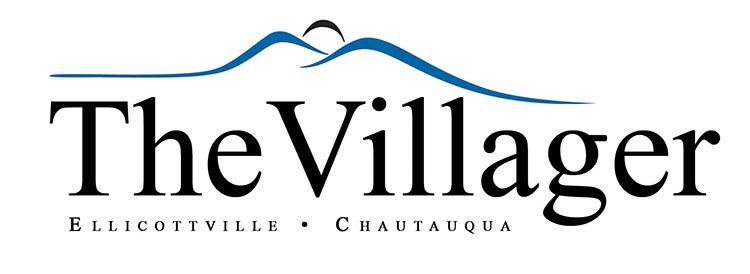By Kelly Hannon
The past few years have been unusually challenging for most people. The COVID-19 pandemic interrupted our lives, inflation persists, and extreme weather has become the “new norm.” Not much shocks me anymore, but one thing I didn’t have on my 2023 bingo card is being involved in a rebellion against Artificial Intelligence (AI).
I grew up in Salamanca and had a wild imagination as a kid. I’d actually like to take this moment to publicly apologize to all my friends and family members for forcing them to act in my ridiculous skits and home videos. But my directorial torture wasn’t all in vain—the hours I banked behind my ‘90s Sony Handycam, helped me lay the groundwork for a career in Hollywood as a professional comedy writer.

Leslie David Baker, Rainn Wilson, as well as some friends touring set. 3) Kelly on the set of Disney’s “Coop & Cami” with director Danielle Fishel.
After graduating from Syracuse University’s Newhouse School, I moved to sunny Los Angeles to break into entertainment, and eventually landed a job as a digital writer on the television series “The Office.” There was an enormous amount of brilliance on that show, and I learned tricks of the comedy-writing trade from some of the most successful names in the business.
One of my greatest accomplishments is becoming a member of the (the WGA). Screenwriting is incredibly competitive, and they say it’s statistically harder to get into the WGA than it is to be drafted into the NFL, NHL, or NBA. Slam-dunks were never in my future, so I think I picked the right path.
My union TV jobs afforded me a middle-class life in Hollywood with health coverage, a pension, and creative rights. I was able to rent a small bungalow in the hip, but gritty neighborhood of Silverlake, and saved to purchase a vacation home in Ellicottville to be closer to my family part of the year. For the Millennial generation, that’s just about as good as it gets.
But in the two years since I’ve been in Ellicottville fixing up my old farmhouse and developing shows remotely, the entertainment industry, which was already showing signs of crisis highlighted by the pandemic, took a sharp turn. Silicon Valley tech giants came into L.A. and upended a long foundational part of how TV and film writers make a living, rule breaking in the name of “disruption.” This, combined with policy-makers’ pro-consolidation decisions and harmful media mergers, have led to restrictive contracts and untenable conditions.
We’re forced to write at a breakneck pace while pay has declined by 23%. “Mini rooms” have made it so that fewer writers are hired and there’s no ladder to climb. (“Mini rooms are smaller than typical TV writers’ rooms – maybe 2 or 3 people compared to the usual 8 or more.) AI developments are coming fast and furious. And the streaming model has obliterated residuals. The residual payments I used to receive were enough to provide a safety net during long stints of unemployment. So far this year I’ve received $31.67. The streamers love to bemoan that they aren’t profitable. But Hulu, one of the many platforms that my content continuously streams on, is valued at a “minimum” of $27.5 billion.
As we’ve surpassed 140 days on strike with no end in sight, many writers are facing evictions and seeking assistance. It has been financially and emotionally brutal. The survival of writing as a profession and everything I’ve worked toward for fifteen years is at stake, and these past four months have been the hardest of my life.
But the upside of a strike is solidarity, and the community of Ellicottville has shown me so much support during this unprecedented time. I’ve received discounted coffees, free margaritas, and heartfelt condolences. I’ve had lovely conversations with locals about their favorite “Office” moments, and episodes I penned for Disney, and all the passion projects I hope to develop post-strike. It’s reminded me why I do what I do.
Entertainment helps us make sense of our imperfect lives. It bridges gaps, and fosters friendships. Film and TV can change our minds and feelings, and reshape cultural attitudes for the better. It gives us a reason to chat with our neighbors at the coffee shop. It takes us on journeys in space and time. It tells our stories. It gives us the world.
The WGA and SAG-AFTRA are fighting to show that humans cannot always be steamrolled by spreadsheets and stock markets and robots. There’s a lot of cynicism about whether everyday workers can actually do anything about corporate greed. But the truth is, we can. We’re exhausted, but we’ll continue to stand in solidarity wherever we are: the picket lines in L.A., New York City, Atlanta, and even here in Ellicottville, because this strike is a labor turning point. It’s bigger than us, and dismantling corporate dominance matters for everyone – not just Hollywood.
